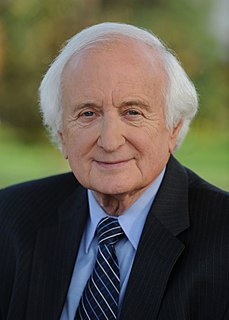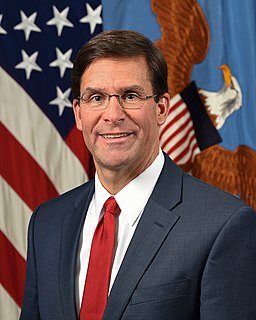A Quote by Sander Levin
In 1940, President Roosevelt called on American industry to become the 'great arsenal of democracy.' Automotive manufacturers in Michigan responded and converted their assembly lines from cars to tanks and helped America win World War II.
Related Quotes
History of America, Part I (1776-1966): Declaration of Independence, Constitutional Convention, Louisiana Purchase, Civil War, Reconstruction, World War I, Great Depression, New Deal, World War II, TV, Cold war, civil-rights movement, Vietnam. History of America, Part II (1967-present): the Super Bowl era. The Super Bowl has become Main Street’s Mardi Gras.
It's very important to understand that World War II is at the base of this new policy. From the 1890s on, the U.S. was always imperialistic. We went after the Philippines, and we did the same in Cuba, in Hawaii. We controlled South America. Woodrow Wilson was not what he was supposed to be. He was very much a white man first. "The world must be made safe for democracy." It really accelerates after World War II.
We were really helped when President Ronald Reagan came in. I remember non-commissioned officers who were going to retire and they re-enlisted because they believed in President Reagan. That's the kind of President Ronald Reagan was. He helped our country win the Cold War. He put it behind us in a way no one ever believed would be possible. He was truly a great American leader. And those of us in the Armed Forces loved him, respected him, and tremendously admired him for his great leadership.
I think in many ways, the Spanish Civil War was the first battle of World War II. After all, where else in the world at this point did you have Americans in uniform who were being bombed by Nazi planes four years before the U.S. entered World War II? Hitler and Mussolini jumped in on the side of Francisco Franco and his Spanish nationalists, sent them vast amounts of military aid, airplanes, tanks - and Mussolini sent 80,000 ground troops as well - because they wanted a sympathetic ally in power. So I think it really was the opening act of World War II.
Mehmet Ertegun died in 1944. President Roosevelt sent his body back to Turkey on the U.S.S. Missouri. Mehmet Ertegun and President Roosevelt had had a cordial relationship, and, indeed, Mehmet Ertegun may have helped insure that Turkey did not ally itself with Germany, as it had in the First World War.
After World War II the Republicans - the Wall Street crowd - were very worried about a depression coming back. They hated Franklin Roosevelt in that crowd, my father among them. And there was a great fear in '46 that we'd fall back into the pits. And they always wanted to break up the Roosevelt legislation.
Historians differ on when the consumer culture came to dominate American culture. Some say it was in the twenties, when advertising became a major industry and the middle class bought radios to hear the ads and cars to get to the stores. ... But there is no question that the consumer culture had begun to crowd out all other cultural possibilities by the years following World War II.

































